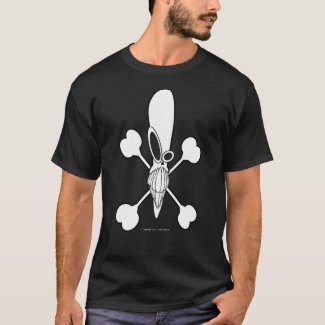 |
 |
Review by Mark Worthen |
|

by Whitley Strieber USA Release: Mar. 31, 2011 Tor Hardcover, 336 pages ISBN 0-7653-2376-1 |
|||
Fan fiction first began to appear in the 1920s, first as parodies, then as retellings of Jane Austin stories and fan-authored Sherlock Holmes adventures. When it reappeared in 1967 in a magazine known as Spockanalia and then other places, one of the most common and unfortunate types of stories revolved around a character commonly referred to as the Mary Sue. This plot appeared so often in early works of Star Trek and Doctor Who fan fiction, it gained the nickname because the character is near-invincible, genius or near-genius, and always saves the day for the other characters.
Kirk needs her, the Doctor depends on her, and the Robinsons would have all died without her. Mary Sue is nearly always a woman, nearly always has a double name (Cindy Lou or Amy Jo, for example), and she is nearly always based on the writer's personal fantasies of a perfect hero. She is the modern-day god from the machine, taking care of any situation with her extraordinary abilities.
Male versions of the character (Gary Sue or Marty Sue, in the vernacular) do exist as well. It has been said the character of Wesley Crusher (Star Trek: The Next Generation) was a parody of the typical Mary Sue character, and only slightly based on Gene Roddenberry's youth.
The trouble with the Mary Sue plot is it's boring. She has no flaws, few weaknesses and invariably saves the day on the first try. As such, the conflict is weakened, and the tale doesn't work as a story because it almost literally has no process of problem-solving or overcoming of difficulty. A problem is presented, promptly crushed, and the story ends.
Recently, I received Whitley Strieber's HYBRIDS in the mail and I cracked it with gusto, wanting very much to like and enjoy it.
And to a certain extent, I did. But I thought immediately of the Mary Sue stories.
The story setup, while familiar, is a situation that works. The reader learns almost immediately – from the flyleaf, in fact – that Colonel Mark Bryan is a hybrid – a quasi-human species created by an unbalanced scientist with government funding and access to alien DNA (and I would have liked to have known more of the story of how he got it – it sounded very interesting). Bryan is a complex combination of human, machine and extraterrestrial, designed to specifications and shaped like a man.
When other hybrids of a different generation than Bryan turn on humanity and begin an almost literal orgy of systematic killing, he has to deal with his own alienness, work out his loyalties and fight for the woman he loves. The problem is that, though the story is not as predictable as it first sounds, all his decisions and resolutions seem to come too easily for him. One by one, he overcomes his problems, makes his decisions, and works out his future, pursuing it almost with almost unopposed abandon.
Just like Mary Sue.
I won't give away the ending, which turns out to be a major plot twist even I didn't see coming. It doesn't end the way one hopes or expects, and kudos to Strieber for an ending I couldn't predict. But even so, it stretched my suspension of disbelief to its limits.
The problem here lies in the fact that Strieber's characters are too strong, and have very few exploitable flaws. He designed his hybrids too well, and with each new challenge, Bryan almost effortlessly discovers a new ability to meet it. Yes, the plot has setbacks, but instead of being near-devastating as they should have been, they were merely situations to be met.
As a result, other reviewers interpreted the characters as too shallow. Not so. I think the two leads were plenty dimensional. But when you pit superman against superman, we would expect the same result as two heavyweights battling it out in the ring – sure, Rocky Balboa can kick my ass, but I should see some measure of equalization between him and, say, Mr. T or that Russian guy. And when other hybrids come in on one side or another, I should still see someone having to work a little bit to achieve their end.
Now, having said all this, I need to emphasize that Whitley Strieber tells a hell of a story in this book. Not only did he make me care about the characters, despite their odd inability to lose, but he kept me turning pages. And I think the reason for this was it wasn't really that Colonel Bryan's fate was ever in question.
It was ours.
The body count in this story is unusually high, and it looks as though in the battle between superbeings that the rest of us are going to end up as collateral damage. There are enough human supporting characters the reader comes to care about (even the insane ones) that we're not sure if the planet will go to us or the big guys.
Another thing Strieber accomplishes in this tale is to create some truly chilling aliens. The next generation of hybrids looks non-human, suffers from an almost sexual fascination with torture, has very little empathy for any kind but its own, and is Spockishly Vulcan in its reasoning. Additionally, these cold-hearted sadists are obsessed with improving their species' capability of bettering their killing skills through both practice and biotechnology. They seem to always be creating more and better killing tools, most of which are sentient or nearly so. The one thing they can't seem to get right are the eyes.
So they steal those of the victims, and that's the thing that truly made me shudder.
All of these traits combine to make the bad guys flawless killing and tracking machines, much like a shark on land. Without the weaknesses of having to keep constantly moving, of course.
So when the alien beasties overrun San Francisco in a lengthy scene of horrific and joyous brutality, some of the descriptions in this passage approach a kind of remorseless savage poetry.
The summary? Even with the book's character flaws, which the reader may deem massive or overlookable, Strieber absolutely succeeded in making an engaging read that made me want to return to its pages again and again to see if the hero would defeat the enemy and go home to the arms of his lady.
Not to mention whether home would be on this planet or elsewhere, and whether anyone fully human would be left at the end of it all.
I had almost as hard a time rating this book as I had putting it down. I'm going to give it three bookwyrms, but, as always, I'm also going to leave the final verdict up to you.



This review copyright 2011 E.C.McMullen Jr.
| WHAT TO WEAR? | |
| FEO AMANTE'S HORROR THRILLER Created by: E.C.MULLEN JR. |
| COME FOLLOW ME @ Amazon |
| ECMJr |
| Feo Blog |
| IMDb |
| Stage32 |
| YouTube |
| Zazzle Shop |

